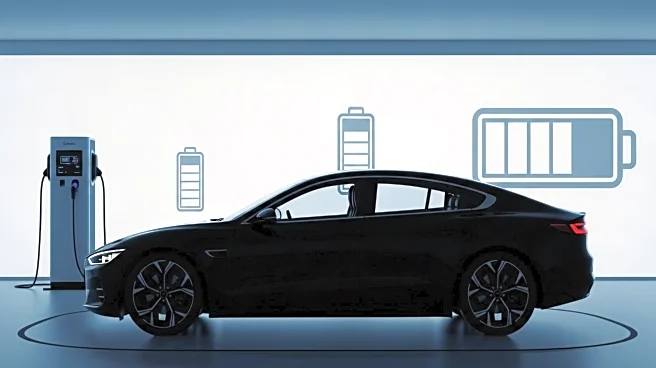What's Happening?
Nissan has introduced a new S+ model of its Leaf electric vehicle, boasting an EPA-estimated range of about 300 miles. This model is priced at approximately $29,990 before incentives, potentially making it more affordable for consumers. However, the launch of this next-generation Leaf has been marred by significant battery shortages. According to reports, Nissan has had to cut planned production by more than half at its Tochigi plant from September to November 2025. This reduction is due to supply chain issues affecting battery availability, which are expected to result in several thousand fewer units being produced each month.
Why It's Important?
The production cutbacks highlight ongoing challenges in the electric vehicle industry, particularly concerning battery supply chains. As demand for electric vehicles grows, manufacturers like Nissan face pressure to secure reliable battery supplies to meet production targets. This situation underscores the importance of developing robust supply chains and could influence future strategies for sourcing and manufacturing. The reduced output may impact Nissan's market share and sales performance, potentially benefiting competitors who can maintain production levels. Consumers may also face longer wait times for the new Leaf, affecting market dynamics and consumer choices in the EV sector.
What's Next?
Nissan will likely focus on resolving the battery supply issues to restore production levels. The company may explore alternative suppliers or invest in battery production capabilities to mitigate future disruptions. Industry observers will be watching how Nissan navigates these challenges and whether it can maintain its competitive position in the growing EV market. Additionally, the situation may prompt broader discussions within the industry about the need for more resilient supply chains and increased investment in battery technology.









